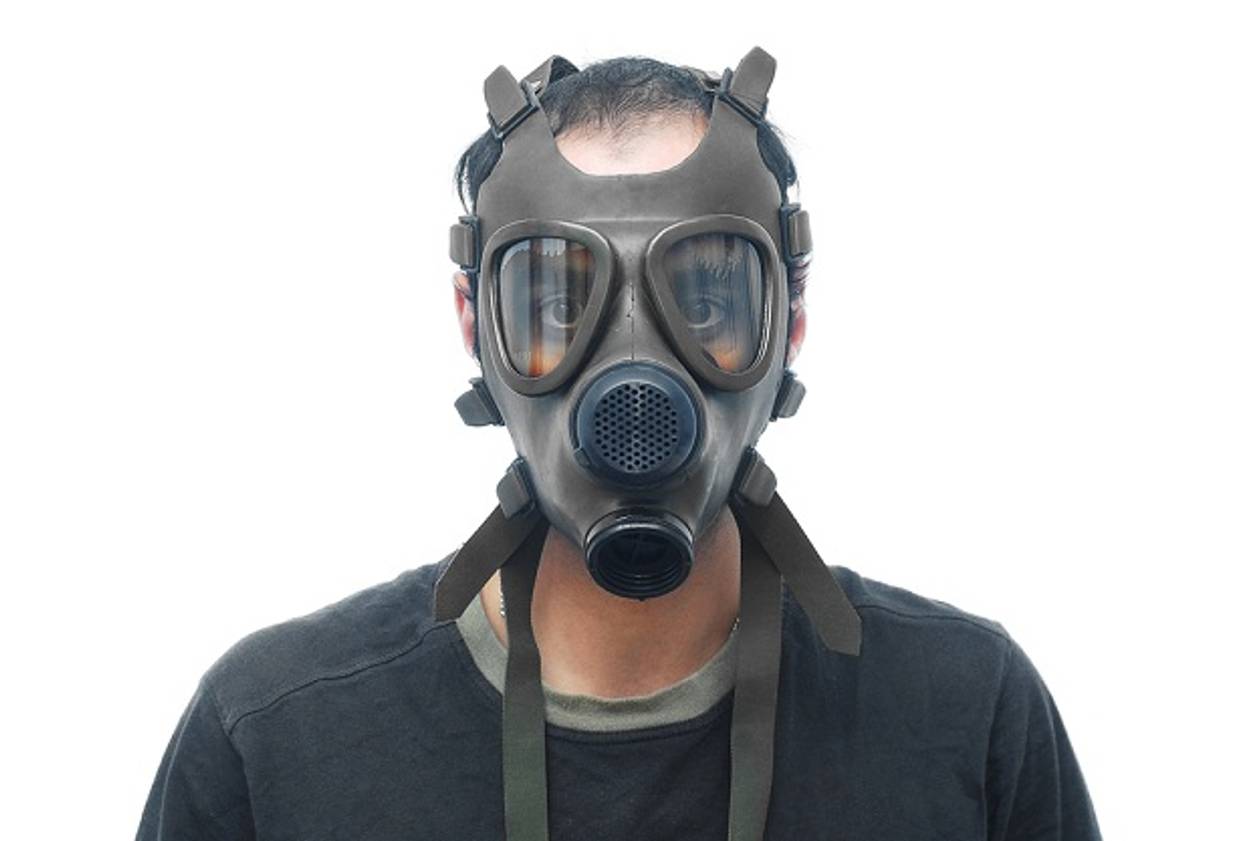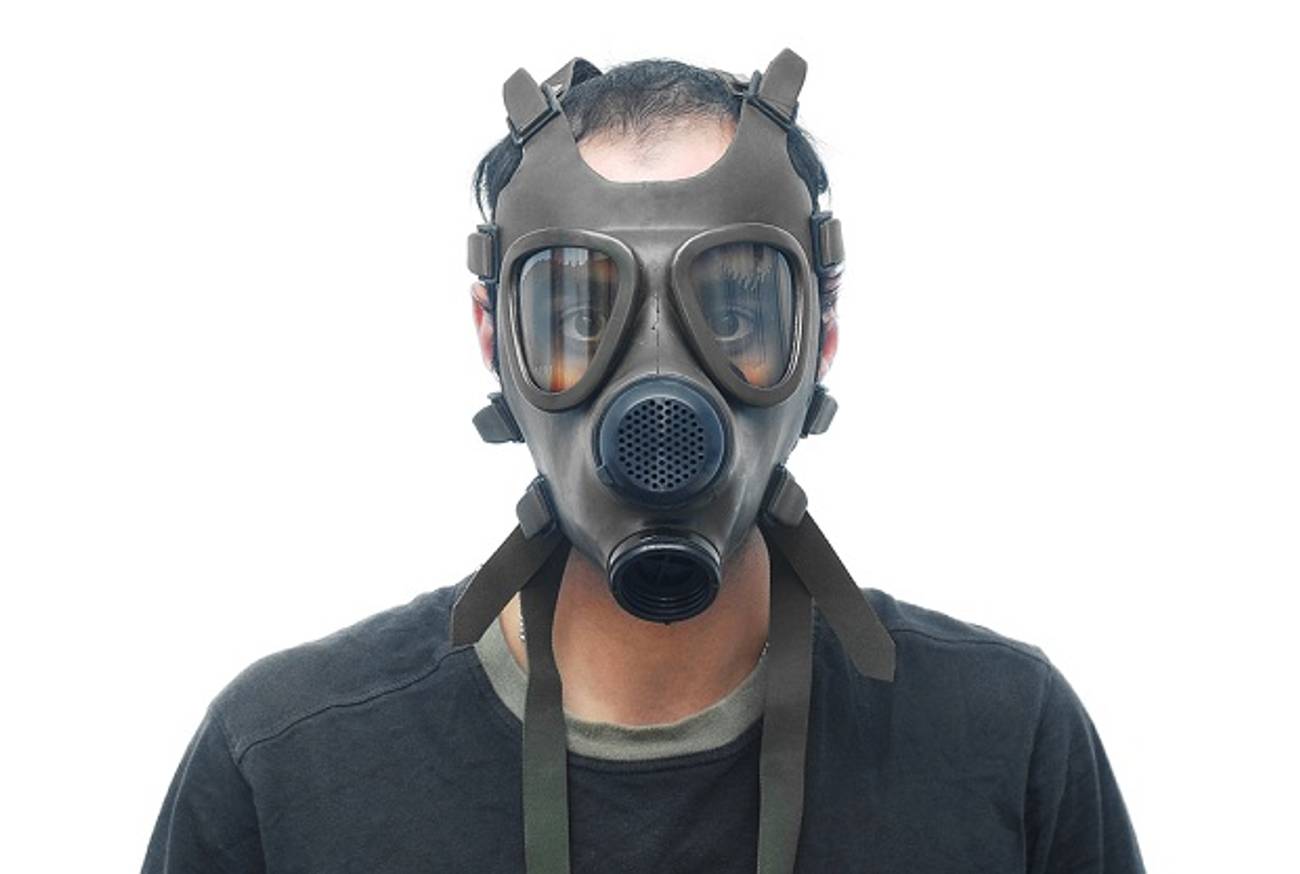Why I Never Got a Gas Mask in Israel
Reflections on being an outsider under fire




I was rummaging through my shoebox of cosmetics recently, looking for a lip gloss, when I pulled out an antidote for nerve gas exposure. It was only a few months ago that everyone in Israel was lining up for gas mask kits. It was this past summer; Syria had chemical weapons and the United States was considering a ground attack. What nobody knew at the time was that we were in the twilight of the gas masks. At the end of February, the government stopped distributing masks to citizens.
It’s the end of an era: since the 1990s, Israelis have been able to get a mask for free from government distribution points. My friend Sarai recalls going to elementary school with her gas mask kit in tow. Each student had one, a little gas mask in a little box. With their teachers’ help they decorated the boxes one day in class. Sarai remembers markers, glitter, stickers. “Hiya kef,” she shrugs. “It was fun.”
Last summer, when it seemed like at any second a rocket bearing sarin gas might land on Tel Aviv, I felt like the only person in Israel without a gas mask. The government-distributed masks are only available to citizens: non-citizens like myself are on our own. I searched for Israeli gas masks on eBay. It was my first real look at one. They didn’t seem to have changed since the blitz: black rubber affairs with droopy eyes and metal snouts. Some sellers used mannequins to display the masks, as if they were modeling Halloween costumes: “Naughty S & M Duck,” maybe.
I probably just should have bought one, but I closed my computer and lay on my bed, thinking about would happen if I heard the rising moan of the rocket siren at that very moment. You’re supposed to go to a windowless area like a shelter or your building’s stairwell, but I saw myself rushing panicked out onto the streets of Tel Aviv. There I would find a city of gas masks. Couples holding hands, children on bikes, babies in strollers. Everyone wearing a gas mask. Dogs in gas masks. Thousands of silent, safe faces, all turning to stare at me.
My boyfriend pleaded with me, “Please just buy the gas mask. I’ll help pay. Please.” He was born here; his name is Tal. Loving and resourceful, Tal found for me plastic viles of Atropin—the antidote to many nerve gases. I put them in a shoebox with my cosmetics. And still, I didn’t buy a gas mask. When I told my Israeli friends I didn’t have one, they would ask why I didn’t just go to a distribution center. And when I told them why—that I wasn’t a citizen—they would shift uncomfortably. There is nothing to blame them for, yet I found I relished their discomfort.
Of course, I wasn’t really the only person in Israel without a gas mask. And I began to pick out people on the street who I knew probably didn’t have one either. Down every boulevard in this country, aged Israelis hobble attended by Filipino caregivers on foreign worker visas. In southern Tel Aviv, refugees from Sudan and Eritrea lie on park benches, their asylum claims never processed. Seeing them, I wondered if they worried about how to afford a gas mask. I wondered if they looked at me, and assumed I had one.
A new nightmare takes form. In this one, I have a gas mask and when the air raid alarm comes, I am standing in the sea of black rubber. I am one of the anonymous faces staring without speaking at another human being. Someone who does not have a gas mask, who has not found the arms of this country open to him.
It didn’t take long for concerns about Syria to pass and, with or without gas masks, we all moved on. What stuck with me, however, was a sad new understanding that this is a hard place to be an outsider.
I remember the day Tal brought me the antidotes—how we sat in bed, my chin resting on his shoulder while he demonstrated how to inject: green cap comes off, needle goes down firmly into your thigh. Like an epi-pen. I felt then what I hope everyone feels when she sees the brown cardboard box under her bed, covered in dust and surrounded by mismatched socks—I felt safe, I felt loved.
Rebecca Sacks is currently writing from Israel, where she studies religion and literature at the graduate level. Her Twitter is @bsnacks.
Rebecca Sacks is currently writing from Israel, where she studies religion and literature at the graduate level. Her Twitter is @bsnacks.